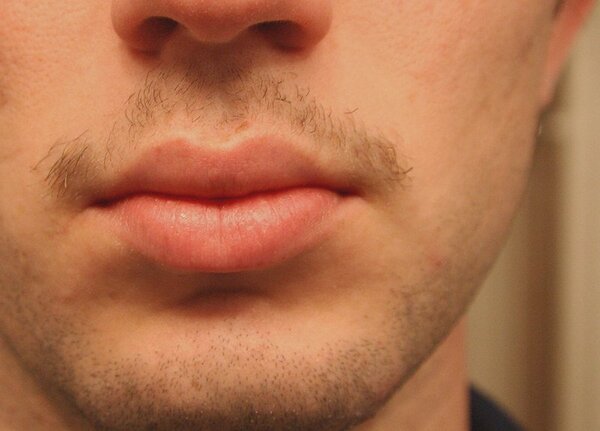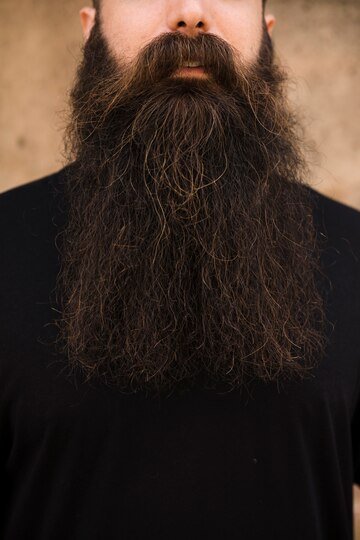Slow beard growth can be frustrating, especially when it feels like everyone else’s beard is coming in thick and fast. For some, growing a full beard happens quickly, while for others, it takes much longer. The speed at which facial hair grows can differ greatly from person to person, and achieving the desired beard can be a challenge.
There are many reasons why a beard might grow slowly. Some of these reasons, like your age, genetics, and hormones, are out of your control. However, there are also factors that you can influence, such as your diet, stress levels, beard care routine, and overall health. By understanding the causes of slow beard growth and focusing on the areas you can control, you might see an improvement in your beard’s growth and thickness. In this post, I’ll go over both the uncontrollable and controllable reasons for slow beard growth and offer some solutions that could help you achieve the beard you’re aiming for.
Table of Contents
Toggle
Reasons for Slow Beard Growth
Before getting to the solutions for slow beard growth, it is important to know the reasons for slow beard growth. Knowing the reasons will make it easier to solve the slow beard growth problem. Here I have divided the reasons into two categories so that you can understand them simply.
Major Reasons for Slow Beard Growth
The major reasons include genetics, age, and hormonal imbalance, which are mostly beyond your control. Let’s discuss some of these reasons.
Genetics
The growth of one’s beard is mostly determined by genetics. The thickness of your beard and its growth rate are largely influenced by genetic factors. You can become more patient if you realize that your beard growth rate can be influenced by your genetics.
Age
Beard growth rate generally increases with age, typically after one’s 20s. Expecting rapid beard growth before this age is unrealistic and not characteristic of intelligent thinking.
Hormonal Imbalance
Testosterone, particularly the male sex hormone, plays a significant role in beard growth. Any imbalance in testosterone or other hormones can slow down facial hair growth. Patchy beard growth and hair loss can also be symptoms of hormonal imbalance, so consulting a doctor is advisable in such cases.
Other Reasons for Slow Beard Growth
There are additional reasons that you can control and work on.
Poor Nutrition
Growing a healthy beard requires adequate nutrition. A poor diet lacking essential nutrients can slow down beard growth. Ensure your diet includes nutrient-rich foods such as biotin, vitamins A, C, D, and E to support beard growth.
Excessive Shaving
A lot of shaving does not encourage a faster-growing beard, despite popular assumption. Over-shaving can have a negative impact on your beard. If you need to groom your beard, consider trimming instead of shaving too frequently.
Stress
High levels of stress can negatively affect beard growth by disrupting hormone production. Managing stress is important for maintaining optimal beard growth.
Inconsistent Beard Care
Proper beard care is essential for healthy growth. Neglecting beard care can lead to issues such as patchy growth, itching, skin irritation, and dryness.
Solutions for Slow Beard Growth
If you’re dealing with slow beard growth, there are several steps you can take to encourage faster and healthier growth. While some factors, like genetics and age, are beyond your control, focusing on what you can manage is essential. From proper beard care to maintaining a balanced diet, these solutions can make a significant difference. By making a few adjustments to your routine and habits, you can help your beard reach its full potential.
Taking Good Beard Care
You should prioritize your beard grooming if you want to improve your beard growth. Keep your beard always clean and moisturized by practicing good beard care. Wash your beard regularly with a good and gentle cleanser and use high-quality beard oil. Additionally, comb or brush your beard to stimulate blood flow to the follicles.
Taking Supplements
Certain supplements can improve your beard growth. Vitamins A, B, C, and D, Zinc, Iron, and Protein are some of those supplements that provide nutritional support.
Improving Diet
A healthy diet is also a key factor in your beard growth. Consume sufficient nutrients, including lean meats, vegetables, and fruits. Healthy fats, vitamins, proteins, and minerals can support your beard growth as well.
Exercise
Regular exercise increases blood circulation and improves the hair follicles on the face. The increased blood circulation supplies essential oxygen and nutrients to the hair follicles, helping to grow your beard.
Being Patient
Patience is key in the beard journey because beard growth takes time. It can take several weeks or months to see significant progress, and growth varies from individual to individual. So it’s better not to be concerned by comparing your growth to others’ and to maintain your patience.
Managing Stress
Stress is related to the above point. Do not stress about slow growth or the time it takes for growth. Instead, be patient. Stress is always bad for your overall health.



